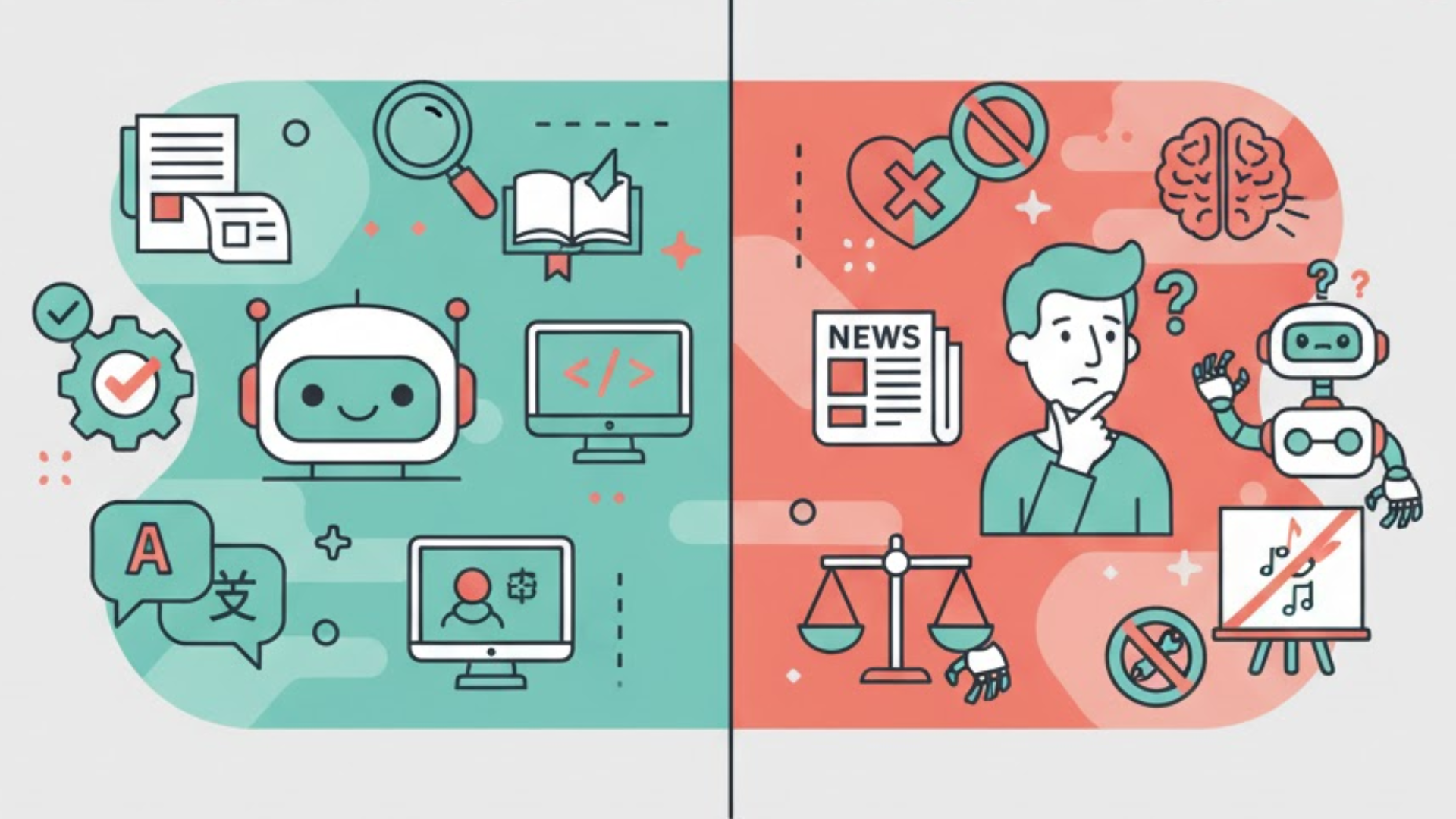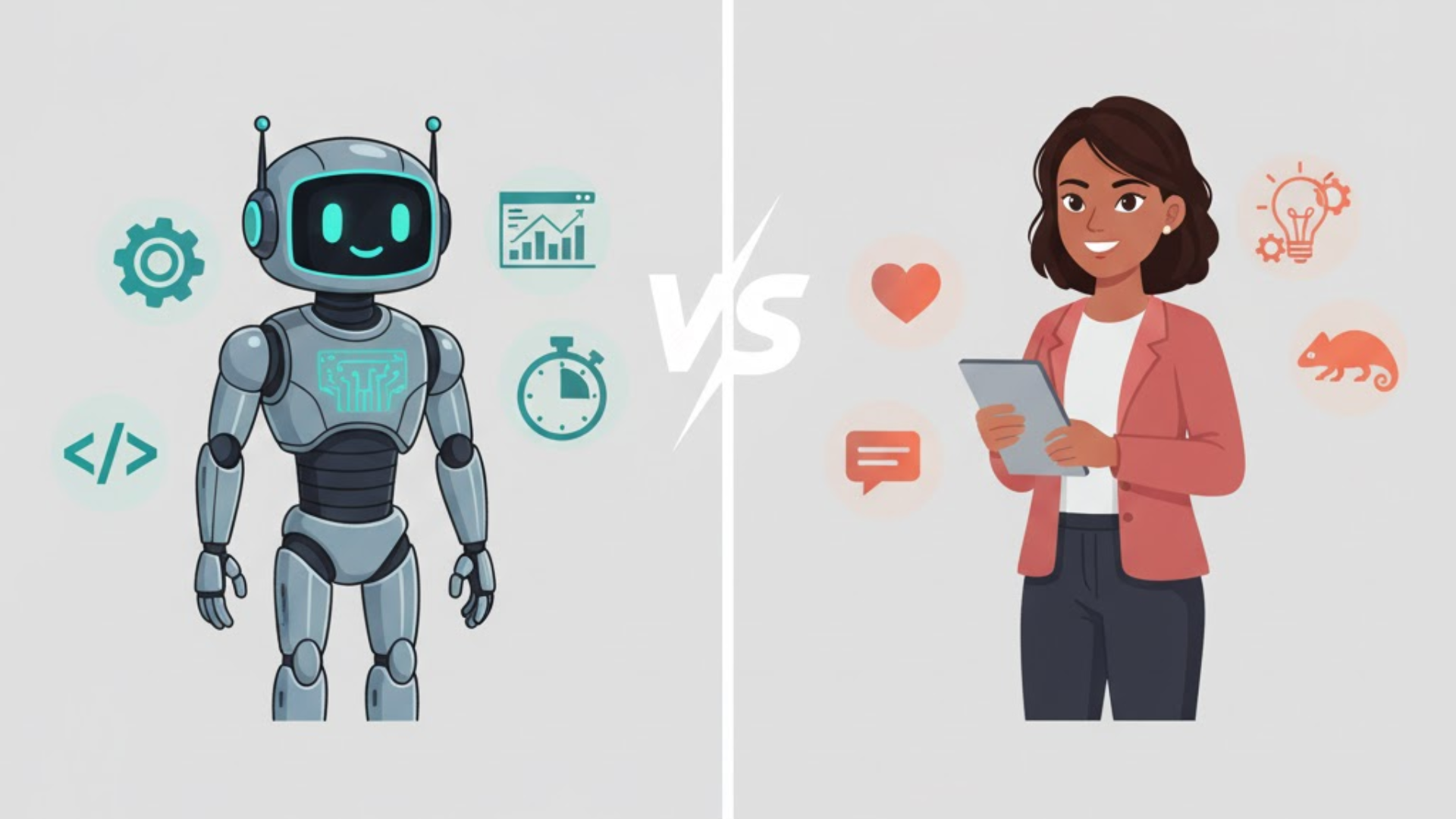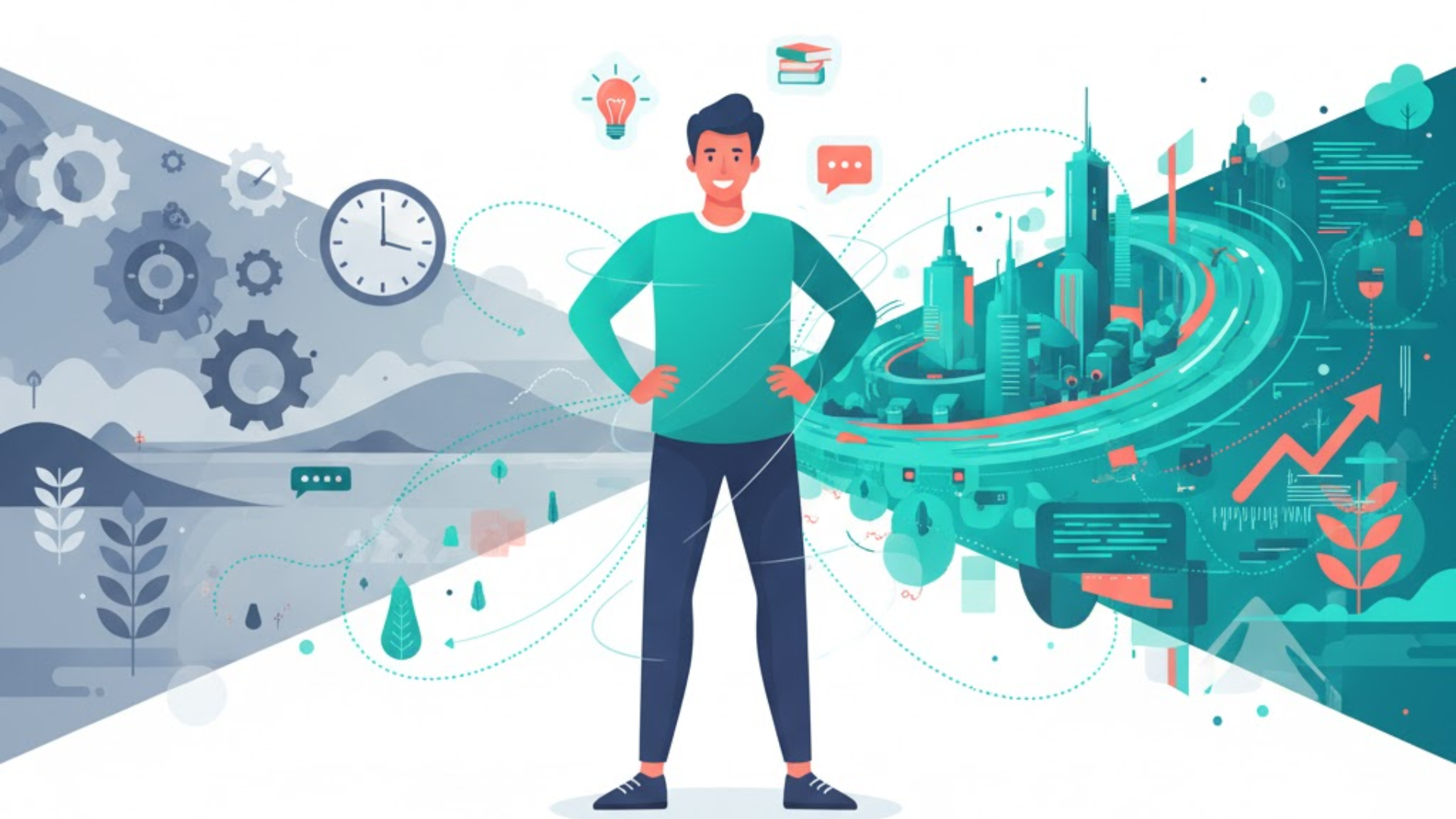Limitations of AI Assistants: Why AI Can’t Replace Virtual Assistants
Artificial intelligence has taken the world by storm, promising efficiency, speed, and round-the-clock productivity. Many businesses have started integrating AI tools into their daily operations, from scheduling and content writing to customer service. But as impressive as these systems are, one question continues to surface: can AI truly replace human virtual assistants? The answer is a clear no. Despite all the advancements in technology, AI still falls short in areas that require emotional understanding, adaptability, and genuine human connection.
This is where the limitations of AI assistants become evident. While AI can perform repetitive tasks, analyze data, and automate workflows, it lacks the depth and nuance of human intelligence. For businesses that value personalized support, creativity, and emotional intelligence, AI simply cannot match what a skilled virtual assistant provides.
Related Article: Meet our VAs
STOP MANAGING TASKS. START LEADING.
SMART Delegation helps you reclaim your role as CEO while building a stronger team.
What AI Assistants Can and Cannot Do
Five Things AI Assistants Can Do
1. Automate Repetitive Tasks
AI assistants are highly efficient when it comes to routine, repetitive work. They can automatically schedule appointments, send reminders, manage contact lists, and organize files without human supervision. This ability helps businesses save time by removing the need for manual input on small daily tasks. It also reduces the chance of human error when handling simple, structured processes. For businesses with a high workload, AI tools provide consistency and speed in handling repetitive responsibilities.
2. Process and Analyze Data Quickly
Another area where AI excels is data management. AI assistants can process large amounts of information within seconds, create summaries, and generate reports. They can identify trends and patterns in the data, which can help guide decision-making. This makes them valuable for tasks like analyzing website traffic, monitoring customer interactions, or reviewing performance metrics. Their speed and precision allow human teams to focus on strategy rather than spending time on data crunching.
3. Provide Instant Responses
AI assistants can deliver quick answers to basic questions, making them a useful tool for customer service or internal communication. They can handle frequently asked questions, confirm appointments, and provide pre-set information around the clock. This constant availability helps improve efficiency by ensuring no client inquiry goes unanswered. For example, AI chatbots can instantly respond to inquiries outside business hours, which enhances customer satisfaction. While they lack emotional depth, their responsiveness adds convenience and accessibility for businesses operating across time zones.
Related Article: Building Customer Satisfaction: The Ultimate Guide
4. Support Workflow Efficiency
AI systems can streamline multiple aspects of workflow management. They can integrate with email, calendars, and project management software to keep teams organized and on schedule. This coordination reduces bottlenecks and keeps projects moving smoothly. Many businesses use AI to automate status updates, send notifications, and manage internal processes that would otherwise consume time. With proper setup, AI assistants help teams stay consistent and improve overall productivity.
5. Assist with Language-Based Tasks
AI assistants can perform several tasks involving language and communication. They can transcribe meetings, translate documents, summarize long texts, and even draft simple written content. This is particularly helpful for global businesses that handle multilingual communication or large volumes of written material. AI can also standardize responses, ensuring messages are professional and grammatically correct. While it lacks originality and human tone, it serves as a helpful support tool for tasks that rely on clear and structured writing.
Five Things AI Assistants Cannot Do
1. Manage Client Communications with Empathy
AI assistants can handle automated responses, but they cannot manage client communication that requires empathy or emotional awareness. When a client is upset, confused, or needs reassurance, AI often provides generic or tone-deaf replies that make situations worse. Human virtual assistants can read between the lines, detect frustration, and respond in a way that soothes tension or builds trust. They can also adjust their tone depending on the client’s personality and mood. This emotional intelligence makes human support far more effective in client-facing roles.
2. Handle Complex Scheduling Conflicts
AI can schedule meetings or send reminders, but it struggles with scheduling tasks that involve multiple people, time zones, or last-minute changes. When priorities shift or a conflict arises, AI cannot negotiate with participants or make judgment calls. A team of virtual assistants can analyze overlapping schedules, contact stakeholders directly, and find solutions that work for everyone. They can also anticipate potential scheduling issues before they occur. This level of adaptability and foresight is beyond what are the limitations of AI assistants.
3. Conduct Personalized Market Research
AI can collect data, but it cannot interpret it with business context or tailor findings to a client’s specific goals. When asked to conduct market research, AI often provides raw information without filtering for relevance or accuracy. Human virtual assistants can identify credible sources, compare data points, and extract insights that matter most to the client. They understand business objectives and can deliver research that aligns with strategy. This ability to think critically and connect data to decisions demonstrates the limitations of AI assistants in performing strategic analysis.
4. Manage Crisis Situations or Unexpected Problems
AI is programmed to follow patterns, so when unexpected issues occur like a project delay or client complaint, it cannot improvise or find creative solutions. In contrast, human assistants can think on their feet, make quick decisions, and coordinate resources to resolve problems. They can communicate updates, manage expectations, and ensure minimal disruption to operations. A team of virtual assistants can even divide responsibilities efficiently to contain issues before they escalate. This real-time problem-solving ability shows why AI still depends heavily on human intervention.
5. Protect Sensitive Information and Maintain Confidentiality
AI systems process data using algorithms and cloud servers, which introduces possible security vulnerabilities. Once information is stored digitally, the organization loses some control over how it’s managed or who can access it. Human virtual assistants understand confidentiality agreements and use secure channels for communication. They know how to handle private documents, passwords, and client information with care. Unlike AI, they are accountable for their actions, which reinforces trust and data protection in business settings.
Decision-Making and Adaptability
AI can follow instructions but struggles when those instructions are unclear or incomplete. Virtual assistants can ask clarifying questions and adjust based on a client’s needs. AI cannot do this naturally because it lacks reasoning.
When presented with unfamiliar situations, AI tools often fail to provide useful solutions. This inability to adapt is one of the core limitations of AI assistants. In contrast, human assistants can apply judgment, prioritize tasks, and navigate unique scenarios with ease.
Where Human Intelligence Makes the Difference
Businesses often discover that AI assistants are only as good as the data and instructions provided to them. When those inputs are incomplete or ambiguous, the results suffer. Human virtual assistants understand intent and can make adjustments without being told exactly what to do.
So while AI excels in automation and efficiency, it lacks the creativity, intuition, and human connection that clients depend on
Related Article: Virtual Assistants: Collaborate As You Delegate
Why AI Will Never Replace Virtual Assistants: Limitations of AI Assistants
Emotional Intelligence and Human Connection
The growing debate around AI assistants vs virtual assistants often centers on productivity. Many assume AI is the superior option because it can operate continuously without breaks. But productivity is not only about speed, it’s also about quality, adaptability, and emotional understanding.
Virtual assistants bring empathy and awareness to their work. They can detect tone, recognize priorities, and adjust communication styles based on the client’s personality. They also build relationships founded on trust and consistency, something no AI can achieve.
Context Awareness and Communication
One of the most significant limitations of AI assistants is their lack of context awareness. AI can identify keywords but often misinterprets nuance or cultural meaning. For example, if a client says they “might” need help, an AI could ignore it because it doesn’t interpret indirect language. A human assistant, however, would sense that support might soon be needed and act accordingly.
Human communication relies heavily on implied meaning, tone, and context, all areas where AI continues to fall short.
Flexibility and Critical Thinking
Virtual assistants can wear many hats: project manager, social media coordinator, or customer service specialist. They can pivot quickly between roles as a business evolves. AI systems, on the other hand, rely on structured processes and cannot adapt easily when new priorities emerge.
This lack of flexibility demonstrates what are the limitations of AI assistants in real business environments. When clients need someone to make decisions, evaluate options, or think creatively, AI simply cannot meet those expectations.
Security and Confidentiality
There is also the matter of data privacy. AI tools often rely on third-party servers for data storage and processing, which introduces potential security risks. Sensitive client or business information could be exposed without proper oversight.
A team of virtual assistants, on the other hand, operates under confidentiality agreements and follows strict security procedures. They can handle sensitive data safely while respecting company policies, something that builds trust and reliability.
Human Adaptability in a Changing World
When comparing AI assistants vs virtual assistants, the advantages of human professionals become even clearer. Virtual assistants can sense urgency, manage emotion, and anticipate needs before they’re explicitly stated. They rely on real experience, empathy, and adaptability, while AI only follows patterns and commands.
These limitations of AI assistants show that technology, while powerful, still lacks what makes human intelligence truly valuable.
The Future of Virtual Assistants
Collaboration Between AI and Humans
Many assume that AI will dominate the future workforce, but that overlooks the enduring value of human reasoning. The role of virtual assistants is evolving, not disappearing. In fact, the demand for skilled remote specialists continues to rise as businesses recognize that the best results come from combining technology with human insight.
AI tools can enhance productivity by automating repetitive tasks, but they cannot handle complex decisions or interpersonal communication. Businesses that balance AI with human expertise gain efficiency without losing quality.
The Rise of Human-AI Integration
The most successful business models today use AI to support virtual assistants rather than replace them. For example, AI can handle scheduling or research, while human assistants manage client relations, problem-solving, and strategy. This blend leverages automation without sacrificing personalization.
A team of virtual assistants can use AI tools to improve workflow efficiency, but they still rely on human decision-making to ensure accuracy and empathy in every task.
The Value of Human Creativity and Intuition
As businesses continue to expand globally, human intelligence becomes even more important. Virtual assistants can interpret tone, manage cross-cultural communication, and craft personalized responses. These skills can’t be replicated by AI because they depend on lived experience and emotional awareness.
Remote specialists bring flexibility and creativity to the table, adapting to each business’s unique challenges. They can strategize, coordinate, and collaborate in ways that AI cannot. This makes them indispensable for businesses that value authentic client engagement.
Sustainability and Human-Centered Growth
Companies that depend entirely on AI often realize that its limitations hinder long-term success. AI can process information, but cannot build relationships or represent a brand’s voice accurately.
Businesses that combine AI tools with human virtual assistants gain a sustainable advantage. They operate efficiently while maintaining authenticity and emotional intelligence, a combination that drives stronger customer satisfaction and loyalty.
The future of work will not be about choosing between humans and AI. It will be about building synergy between them, where AI handles the routine and humans provide the understanding.
The Bottom Line
Smart Virtual Assistant
👍🤵
Smart Virtual Assistant 👍🤵
AI will continue to improve and assist with productivity, but it will never match the depth, adaptability, or empathy that virtual assistants bring. The limitations of AI assistants are clear: they cannot think independently, interpret emotion, or handle complex decisions that require human judgment.
Human virtual assistants understand nuance, build trust, and provide strategic support tailored to each business. They create genuine connections and solve problems creatively.
For business owners looking to grow efficiently without losing quality or personalization, hiring skilled virtual assistants is the best choice. A team of virtual assistants can manage daily operations, marketing, client relations, and administrative tasks with precision and care.
Smart VAs offers expert remote specialists who bring professionalism, creativity, and dedication to every project. They help businesses achieve efficiency through the perfect blend of human skill and smart technology.
AI can assist, but humans make success possible. Smart VAs continues to prove that behind every great system is a greater human team.. Book a call now!
HOW MANY HOURS ARE YOU WASTING?
See how successful CEOs save 40+ hours a month by building a Smart VAs team.
Frequently Asked Questions
-
AI works on pattern recognition and data processing. It can generate responses but cannot understand emotional intent or handle sensitive communication. Complex interactions require empathy and contextual understanding—qualities that reveal the limitations of AI assistants in customer-facing roles.
-
AI can automate repetitive administrative tasks, while human assistants manage communication, strategy, and problem-solving. The partnership allows businesses to benefit from both speed and emotional intelligence. Many businesses empower their team of virtual assistants with AI tools to handle higher-value, creative work.
-
Yes, they can be. Since AI tools process information through external servers, data breaches are possible. In contrast, trained remote specialists adhere to confidentiality agreements and follow strict data protection procedures, making human virtual assistants a safer choice for handling sensitive information.
-
Executive assistants manage relationships, handle confidential matters, and anticipate executive needs. They make informed decisions, prioritize tasks, and navigate ambiguity. These abilities demonstrate what are the limitations of AI assistants, as AI cannot replicate intuition, discretion, or strategic thinking.
-
AI can perform certain assistant-like functions, such as scheduling or automating simple workflows. However, for personalized support, communication, and judgment-based tasks, human assistants are essential. Businesses that rely only on AI quickly encounter the limitations of AI assistants, from misunderstandings to poor adaptability.
Ready to Work Smarter, Not Harder?
Smart VAs provides a team of highly skilled specialists from around the world, ensuring seamless support no matter the time zone. We take pride in delivering efficient, fast, and high-quality service so you can focus on growing your business. With one subscription plan, you gain access to a complete team of digital marketing experts that’s customized to your unique needs, eliminating the need to train and look for one yourself!







